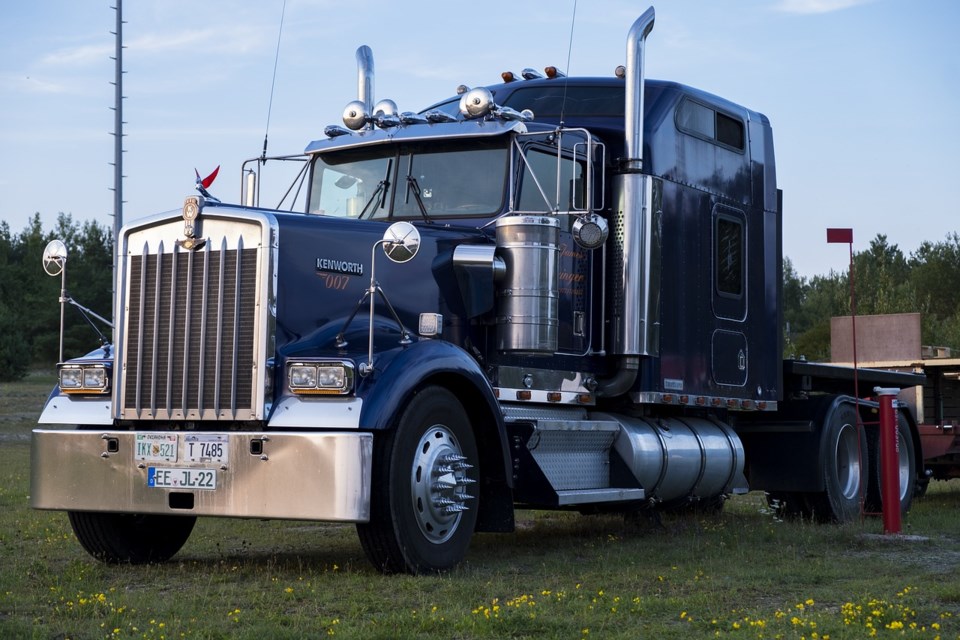EAST CENTRAL — Pattie Fair’s life was turned upside down when her husband was killed in a highway collision in 2017 in British Columbia.
As a health and safety professional and a grieving family member, she has been working ever since on making roads safer for Canadian drivers by pushing for more regulations for the Canadian trucking industry.
“I delved into the commercial licensing system and was mortified about what’s happening.”
Fair has led the way for the development of Safer Roads Canada, a Canada-wide group that is pushing for change within the Canadian trucking industry.
In 2018, 1,922 people were killed in 1,743 collisions on Canadian highways, according to Transport Canada. According to the Insurance Corporation of B.C. and the B.C. Auditor General, 19 per cent of collisions in B.C. involving commercial trucking vehicles. Ontario echos that statistic with the Ontario Provincial Police saying in 2017 that one in five collisions on Ontario highways involved commercial trucks.
Fair appreciates what has been done with provincially based mandatory entry-level training, but it is not enough, she said. The fact that there isn’t a national administration of training programs is their biggest concern.
“Today, you can get a license in the middle of summer with a day cab and a flat deck in Saskatchewan and that very same license entitles you to haul logs across mountain passes. It doesn’t make any sense.”
The Safer Roads group, which includes many Humboldt Bronco crash families, will be working to take a petition to the government calling for stronger regulations and training for Canadian Class 1 license holders, funding for training, and the development of a mandatory entry-level training curriculum and a graduated licensing system.
The trucking industry is also not considered a trade, so there is no funding available to allow people financial support while they develop their skills.
Where it currently stands, trades industries, like hairdressing, Fair said, needs apprenticeship hours, mandatory testing, as well as retesting when moving from province to province, much more stringent regulations than the Canadian commercial trucking industry.
Fair does not understand how anyone can think this is okay, she said.
And these demands are not unrealistic, she said, especially within the Canadian trucking industry. The United States and Europe have already seen recent changes to their commercial trucking laws. Where is Canada on that, Fair said.
Following Fair losing her husband, she spoke with truckers, many of whom are immigrant workers, and all of them supported Fair’s work, many of them admitting to Fair that they do not feel confident driving semis on Canadian roads. Veteran drivers just want out of the industry considering how dangerous it is and it continues to get worse, Fair said.
Going to a loggers’ conference to get signatures for her petition, Fair was surprised at how little, if any, push back she got from truckers. She received 300 signatures in two hours for the petition she later took to the House of Commons as petition e-2005, which is available online. The industry wants to see these changes, she said.
“Truckers are actually aligning themselves with us because they’ve been trying to do this for 20 years.”
Carol Brons lost her daughter, Dayna, in the 2018 Humboldt Bronco crash. Her and husband, Lyle, wanted something positive to come out of the tragedy so they jumped at the chance to join a formal group, like Safer Roads Canada.
“There are so many obvious things that need to be changed.”
Many things have to go beyond mandatory training, Brons said, with education, support, and regulations also being an important aspect of creating safer roads for all drivers.
There has been a decrease in fatal collisions involving commercial trucks since mandatory entry-level training has been implemented, Brons said, and while there might not be a correlation between the two, it does give people hope that things can be improved, she said.
Dr. Ahmed Shalaby, a professor of Civil Engineering at the University of Manitoba, has also joined Safer Roads Canada.
Truck drivers come from every province, so to make the roads safer, trucking licensing and training laws need to apply to every province.
Through his work as a civil engineer, he knows that Canada’s track record towards highway collisions needs to be improved.
Working on the petition, he also wants to see the government act more quickly to enact change.
“We don’t have time to wait for these considerations. We want to be able to emphasize to the government the value and the importance of regulation and the importance of training.”
Safer Roads Canada is still in its infancy, with one of the first meetings taking place this week in Edmonton, but Fair hopes in the next couple of weeks that the group will be up and running.




